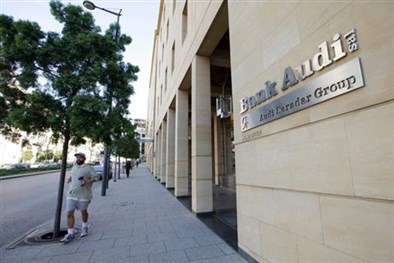source: www.dailystar.com.lb
Bank Audi sounded the alarm Monday over a substantial rise in Lebanon’s public debt and budget deficit at the beginning of the year, warning against policies that could further weaken its financial stability.
The bank, which made the comments in its economic report on the first quarter of 2013, said the debt-to-GDP ratio had soared since 2011.
“After Lebanon witnessed an improvement in its debt and deficit ratios in the second half of the past decade, such ratios are back on the rise, with the debt ratio approximating the threshold of 140 percent and the deficit ratio approaching the 10 percent level,” Audi said in its report.
“As such, it is important to note that within the context of the current situation in Lebanon and the region, and as all eyes are centered on public finance issues around the world, Lebanese authorities should avoid costly policies that add pressures on the state and weaken the ability of the domestic economy to confront domestic and external shocks and contain their spillover effects with no disorderly market drifts at large.”
It said the financial stability Lebanon has witnessed despite difficult circumstances over the past several years did not mean the economy was insulated against future risks.
Lebanon’s debt-to-GDP ratio fell to 135 percent more than a year ago. But the failure to increase revenues or trim spending over the last year has contributed to a surge in the public debt, which is now estimated at more than $55 billion.
The sharp fall in the number of tourists visiting the country over the last two years has also contributed to driving up the debt-to-GDP ratio.
Moody’s ratings agency recently changed the outlook of Lebanon’s bonds and bank deposits from stable to negative due to the economic and political deterioration in the country.
Bank Audi stressed that the country’s GDP could be stuck at an anemic growth rate this year if no major political and economic breakthrough took place soon.
“The Lebanese economy started the year 2013 with an activity similar to the one observed since the onset of the Arab Spring which had undoubtedly adverse spillover effects on Lebanon in the realms of investment, tourism and foreign trade. But within the context of some mitigating factors as well, the Lebanese economy didn’t fall into a recessionary trap, with economic growth slowing down but remaining positive overall,” it said.
It explained that the 2 percent real growth forecast by the IMF for Lebanon in 2013, following a revised estimate of 1.5 percent for 2012, was likely to materialize in the event of a political standstill this year and if the tourism sector saw no improvement during the summer months.
“[Also] if the tourism sector witnesses a significant increase in the number of tourists relative to the previous year’s low base, the economy can achieve a real growth well exceeding 2 percent,” the report said.
Audi also cited several other factors that could allow Lebanon to exceed the IMF growth forcast, including a rise in consumption due to the wage increase, which was only partially in effect for 2013.
image: (The Daily Star/Hasan Shaaban)














